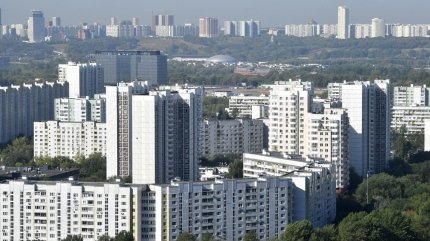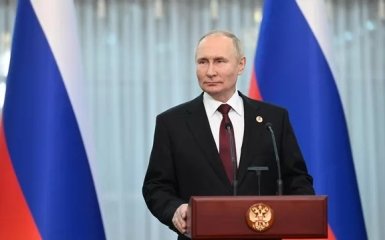In Russia, during the last few years, the efforts of the criminal Kremlin authorities of the dictator Vladimir Putin have significantly reduced the demand for mortgage loans, which is already threatening a crisis in the housing market.
Points of attention
- Vladimir Putin's policies have significantly reduced demand for mortgage loans, leading to a crisis in the Russian housing market.
- Rampant government subsidies fueled a hot real estate market, resulting in skyrocketing housing prices and a potential bubble in the market.
- Russian banks issued a significant volume of mortgage loans, but the increase in interest rates and reduced state support may lead to serious losses for the construction industry and banks.
- The head of the Russian Central Bank warned of 'overheating' in the housing market and suggested a potential 50% drop in new mortgage loans, indicating a looming crisis.
- Despite challenges, Russia's strong war economy and rising wages may help stabilize the real estate market amidst higher rates and reduced government support.
What is known about the signs of an approaching crisis in the real estate market in Russia
Journalists of the publication note that the demand for mortgage loans has increased significantly among Russians during the COVID-19 pandemic, thanks to a generous state subsidy program for buyers of new buildings.
However, Vladimir Putin may have gotten more than he bargained for. Rampant government subsidies fueled an extremely hot real estate market, leading to skyrocketing housing prices. Thus, the Kremlin discovered that it is collecting a huge bill that is growing rapidly, the publication emphasizes.
In particular, in 2020, during the COVID-19 pandemic, the Russian authorities increased benefits for home buyers in new buildings, thus trying to support the economy.
Initially, Russian banks offered preferential mortgage rates in the amount of about 6%, which is about 2% below market rates.

The state guaranteed compensation for the difference.
Similar discounts were later offered to employees and people moving to the Arctic, Siberia and the occupied territories of Ukraine.
However, this did not lead to an increase in the volume of mortgage loans.
The volume of mortgage loans began to grow sharply after the start of the criminal war unleashed by Russia against Ukraine in 2022.
So, in 2023, banks issued mortgage loans for $88 billion, or 4% of GDP, which is significantly more than in 2020.
This shows that Russians lack investment opportunities: sanctions put pressure on the stock market, and currency controls make it difficult to move money abroad. Inflation, which exploded as early as mid-2023, also played a role - and not only because it gave Russians an incentive to invest in bricks. When the Central Bank of Russia began to raise interest rates, the attractiveness of the scheme increased... In June, the gap between the state rate and the market rate for mortgages amounted to more than 10 percentage points, the authors of the material emphasize.
This led to the fact that currently the Russian authorities are forced to pay considerable sums in the form of covering the difference.
The authors of the article emphasize that in the event of an expected increase in rates by the Russian Central Bank to 18%, the state's expenses may increase significantly.
In addition, the increase in the volume of mortgage loans created a "bubble" in the real estate market.
Last year, 110 million square meters were built. m of housing compared to the average of only 59 million per year.
However, at the same time, there is a sharp increase in housing prices.
The Moscow Institute of Urban Economics estimated that they increased by 172% in the largest cities from 2020 to 2023.
What threatens the housing market in Russia
Journalists emphasize that the head of the Russian Central Bank, Elvira Nabiullina, has already accused the government of "overheating" the housing market.
According to her, there is currently a threat of "pro-inflationary risk" if the Russian authorities do not give up soft loans.
Under pressure from the Central Bank of Ukraine and the Ministry of Finance, the Kremlin began to do this. In December, he raised the minimum deposit required for a loan from 20% to 30%.
At the beginning of this month, the most popular scheme, which operated for buyers of new buildings, was discontinued.
Analysts predict that the number of new mortgage loans may fall by about 50% in the second half of the year.
This will lead to the fact that Russian banks that issue mortgage loans and the construction industry in general will suffer serious losses.
Vasyl Astrov of the Vienna Institute for International Economic Studies says a "slowdown and possibly stagnation" is more likely than a significant drop in prices.
Russia's red-hot war economy, which has seen a sharp rise in wages this year, may prove capable of keeping the real estate market stable even in the face of higher rates and reduced government support.




